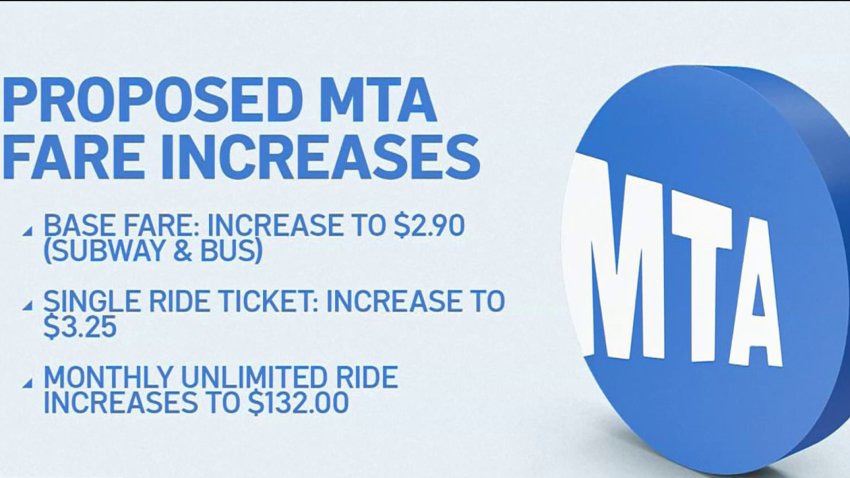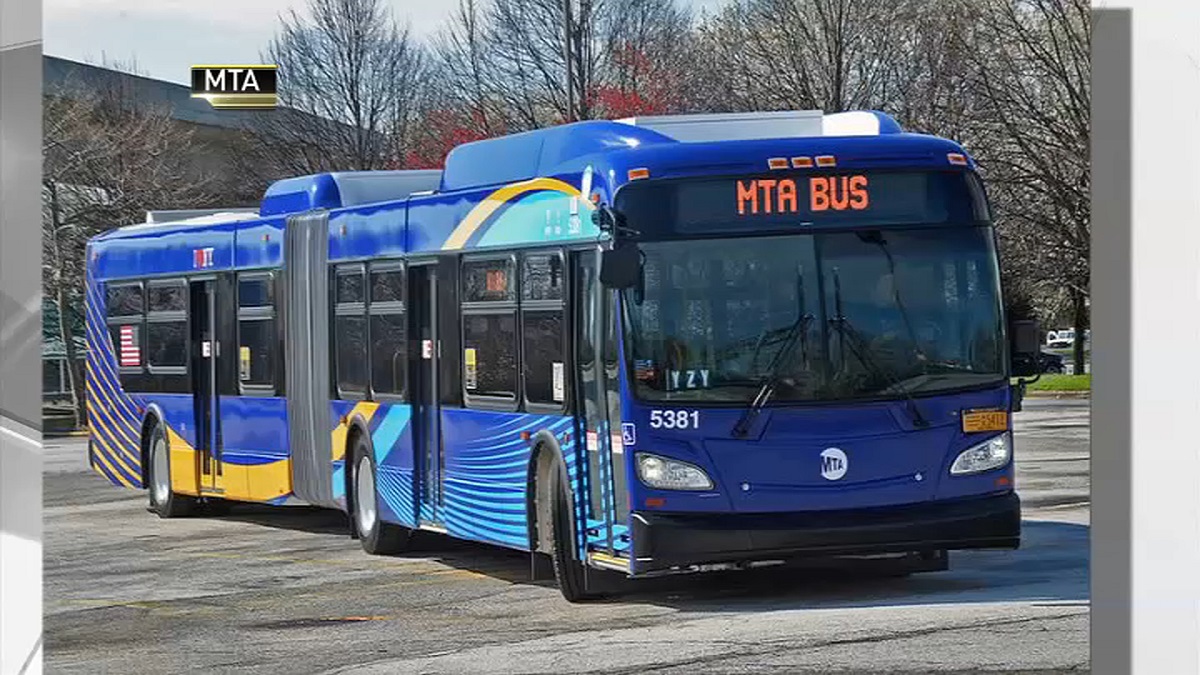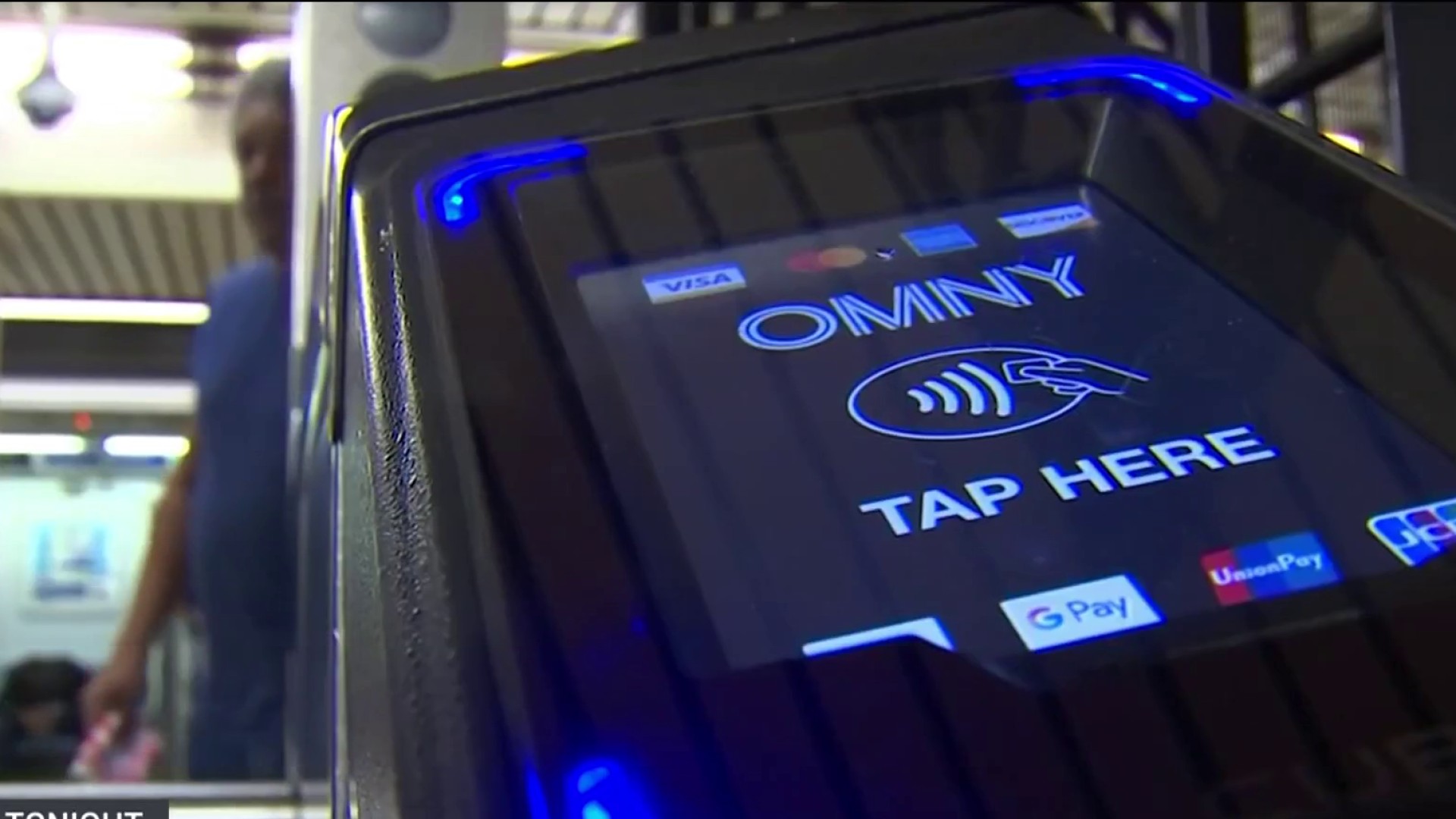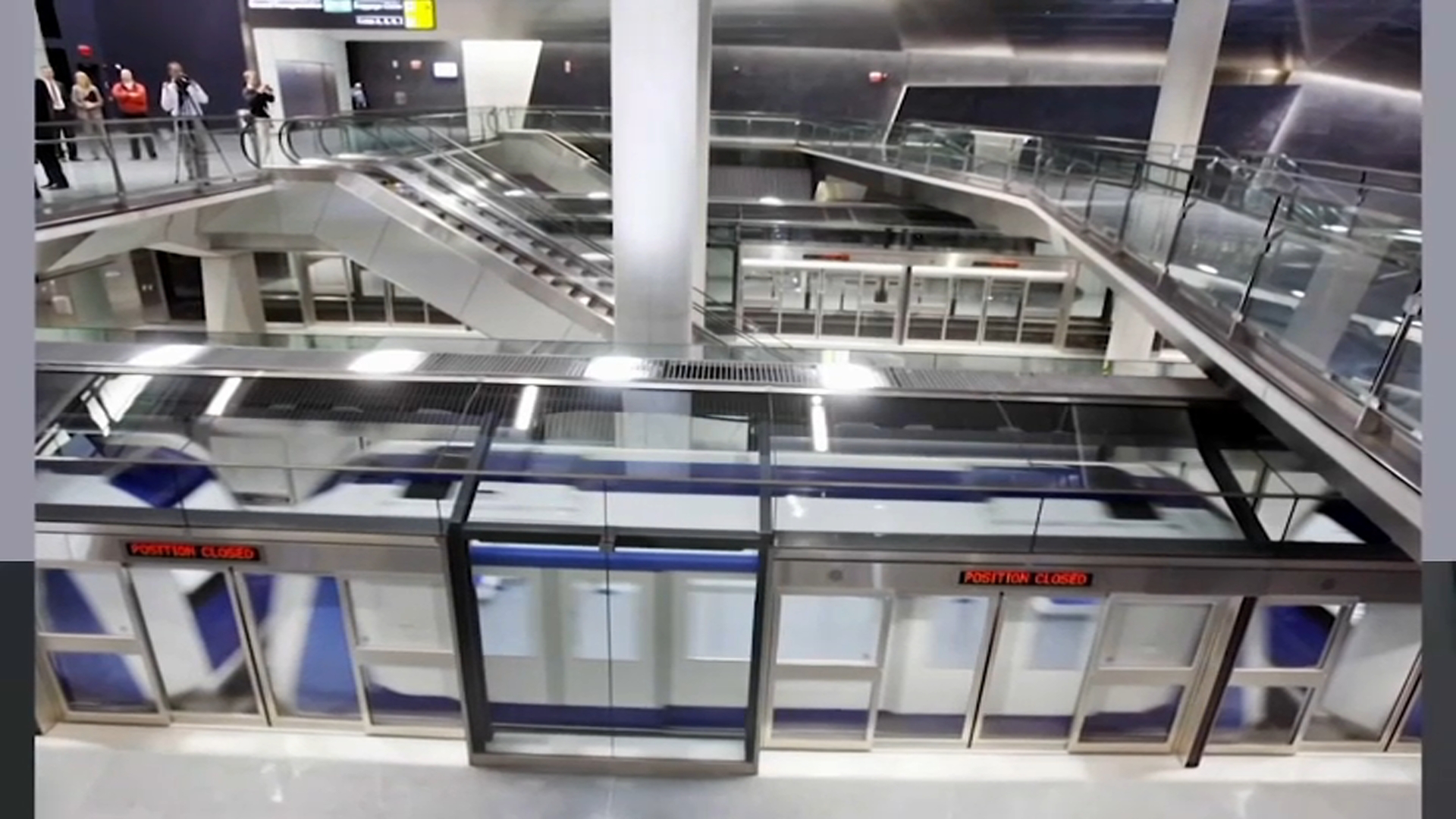It’s about to cost just a little more to ride the bus or the subway in New York City. NBC New York’s Andrew Siff reports.
Get ready to spend just a little bit more for every subway and bus ride in New York City.
The MTA's fare increase for the five boroughs went into effect Sunday. So how much will subway and bus rides cost going forward?
The base fare for both is now $2.90, a 15-cent bump. A single-ride MetroCard costs $3.25, up 25 cents, while an unlimited ticket costs $132 a month, up $5 from the current price. Express bus fares went up to $7 from the previous $6.75.
Watch NBC 4 free wherever you are

All discounts for seniors and other reduced-fare customers remain the same price, the MTA said.
Get Tri-state area news delivered to your inbox with NBC New York's News Headlines newsletter.
The new fares mark the first time that commuters have seen a price hike in the nation's largest mass transit system since before the pandemic. The MTA raised fares in 2019, but only on weekly and monthly MetroCards. The "base" subway fare was not raised at that time, nor was it raised in 2017, but most commuters don't pay the single-rise base fare anyway, so most experienced the increase four years ago.
Commuter rail fares increased as well, going up from $250 per month to $260 for LIRR and Metro-North riders. However, the MTA recently announced a fare freeze for Metro-North riders west of the Hudson River. That freeze is set to go before the transit authority's board for approval.
There is also a change coming to the OMNY tap-and-go fare-cap system. The seven-day period will now start any day of the week, beginning with the first tap into the system, giving riders a bit more flexibility in that regard. Using OMNY, riders' fares for the week will cap out at $34, with all rides after the 12th trip being free.
The increase will come after drivers heading into New York City for work got a small but unpleasant surprise earlier in the month, as rate hikes for bridges and tunnels went into effect Aug. 6. E-ZPass tolls on bridges and tunnels increased from $6.55 to $6.94, following a unanimous approval of toll increases by the MTA in July. It represents a 6% increase for drivers with an E-ZPass -- while those who don't have one will see a 10% increase.
Some of the bridges and tunnels impacted include the Queens Midtown Tunnel, the Brooklyn Battery Tunnel, Verrazano Narrows Bridge, the RFK Bridge, Throggs Neck Bridge and Whitestone Bridge. The MTA said that "modest and predictable fare and toll increases help keep up with inflation, avert radical fare and toll fluctuation."
And that's all ahead of congestion pricing, which is on track to be implemented in Spring 2024, which would add another expense for drivers entering Manhattan below 60th Street.
The fare increases come after the MTA said it would begin its fare free bus pilot on five routes -- one in each borough -- by late September. To see what lines would be made free, click here.
MTA Chairman Janno Lieber said that state law will help guide the review board's decisions, saying that it "complies with the state law on revenue with as low a toll as possible."




